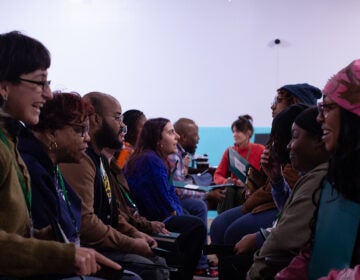Beekeeping and brewmaking: Get to know the city’s apiary scene at the Philly Honey Festival
The Philadelphia Beekeepers Guild held its first honey festival 10 years ago. Local beekeepers wanted to create a space to make bees more approachable.
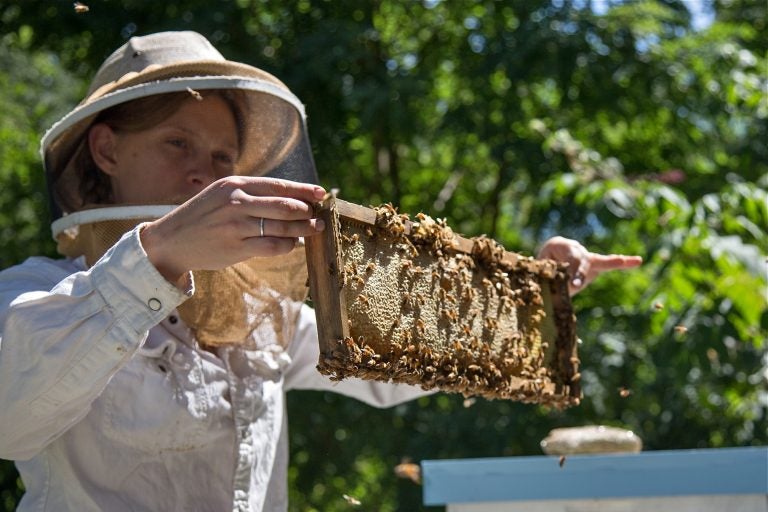
Sarah Plonski, president of the Philadelphia Beekeepers Guild, checks on one of the hives in the guild's apiary in the Awbury Agricultural Village in the Awbury Arboretum in Germantown. (Emily Cohen for WHYY)
The Philadelphia Beekeepers Guild Honey Festival is celebrating its 10th year with a three-day event aimed at making bees more approachable.
Ten years ago, members of the local beekeeping scene wanted to create a space to make bees more approachable. They wanted bees to become less scary to the public, to show how accessible beekeeping can be and how important bees are to the environment and the food supply.
They were building on a long tradition of beekeeping in Philadelphia. The beehive most used in modern beekeeping was developed in 1850 by the Reverend Lorenzo Lorraine Langstroth, a Philadelphian. The Langstroth beehive created a way for beekeepers to extract honey without destroying the hive, giving the bees vertical frames to attach their combs to.
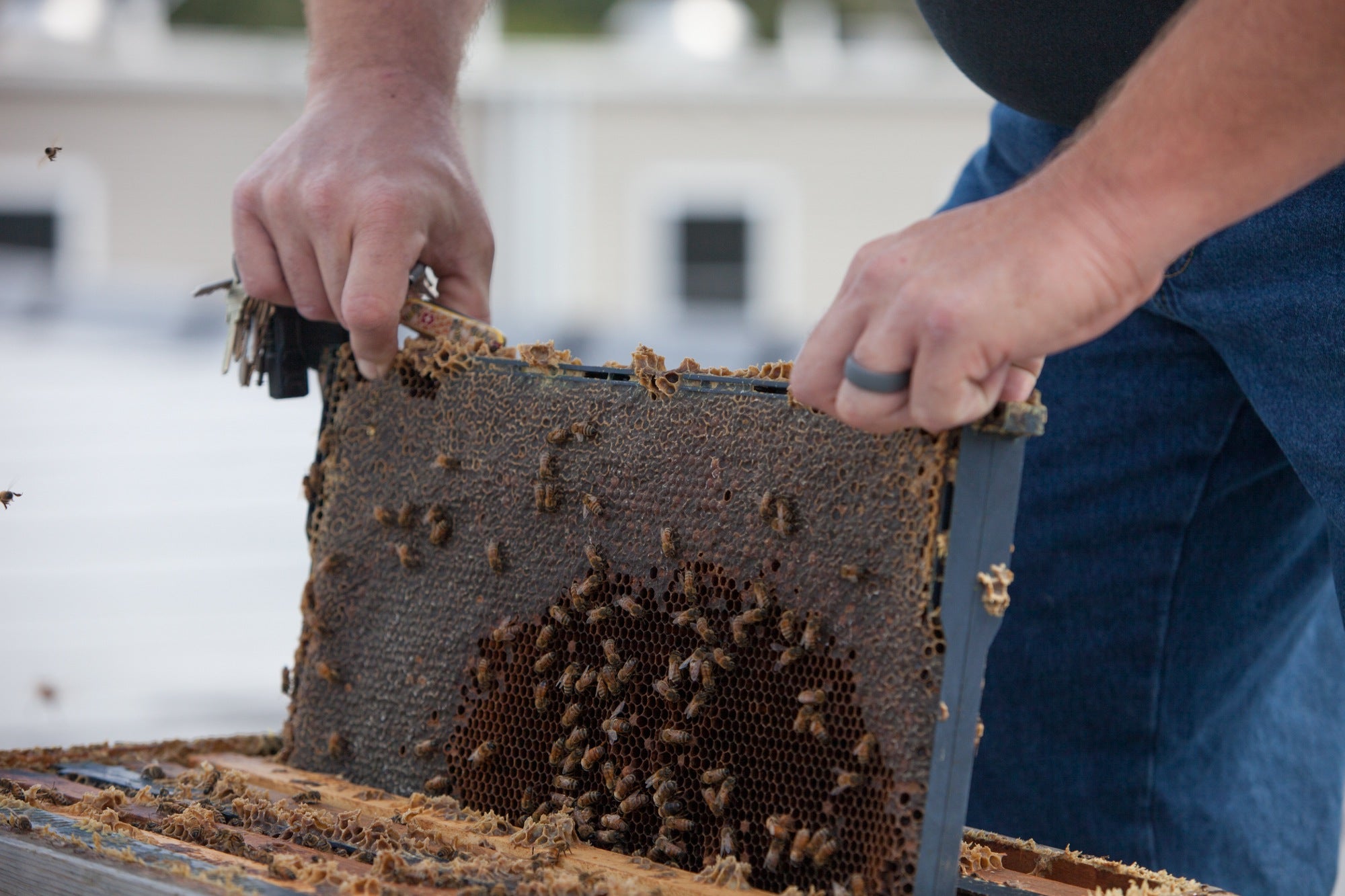
Today the bee scene in Philadelphia is almost 500 hives strong. Some beekeepers go about their urban beekeeping on their own, some join the Philadelphia Beekeepers Guild, and some partner with local businesses to provide hyperlocal honey to the consumer.
When Don Shump and his family decided they wanted to begin growing their own food, they went to their local community garden — and to the garden’s beehive. Now, 13 years later, Shump runs Philadelphia Bee Company and takes care of about 25 percent of the 500 hives within city limits.
Two of those hives live on the roof of Evil Genius Brewery in Fishtown. Two months after the brewery opened in a former railcar repair warehouse in 2017, general manager Garrett Williams reached out to Shump to place beehives on the roof. Garrett spent his childhood on a farm with an apiary, and after his grandmother retired from her bees, she passed her outfit onto him.
“And there’s really no going back from there,” Williams said.
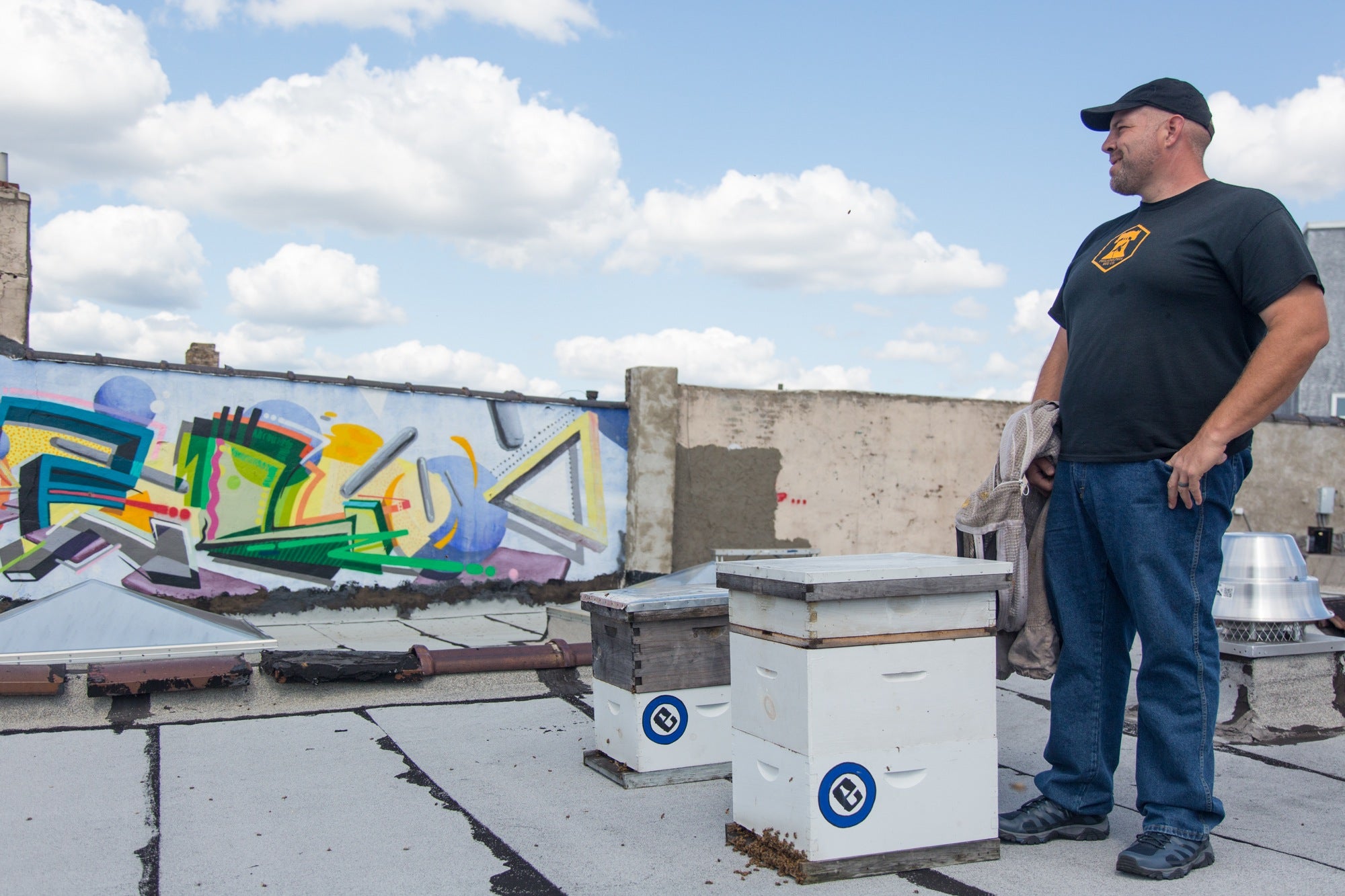
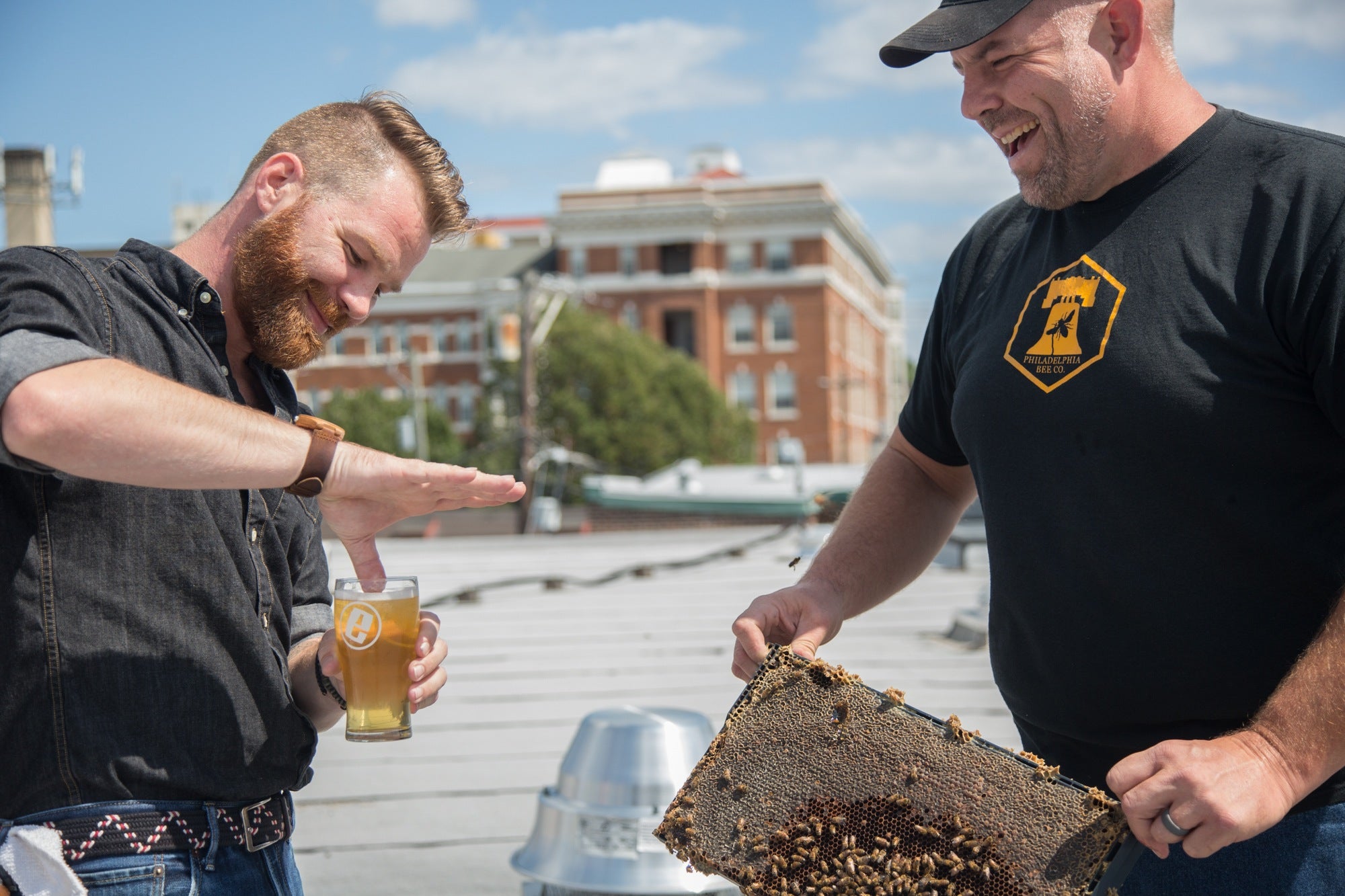
The brewery rooftop is home to 80,000-120,000 bees. Some bees will travel as far as 6 miles when they’re really desperate, but these bees find the food they crave within a mile radius of their hives. The pollinator bees, which are always female, find their meals in local community gardens, parks, and even in vacant lots. They love knotweed, which grows crazy around Philadelphia.
The two colonies create nearly 60 pounds of honey per year for the brewery. While that isn’t quite enough honey to create a beer just yet, the brewery uses the honey in cocktails and on their charcuterie board. They hope to expand their hive count soon and create some specialty beers with their Kensington honey.
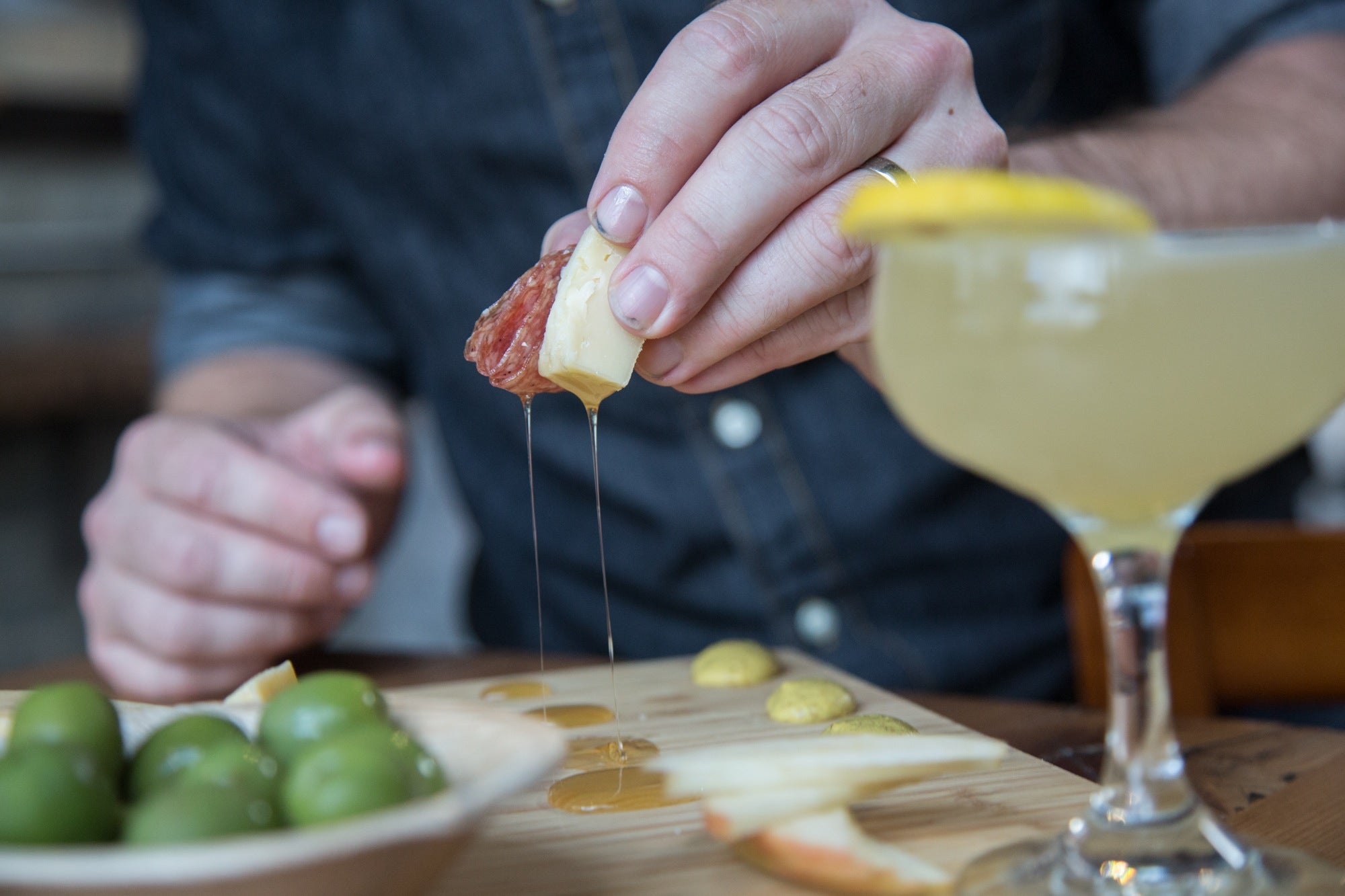
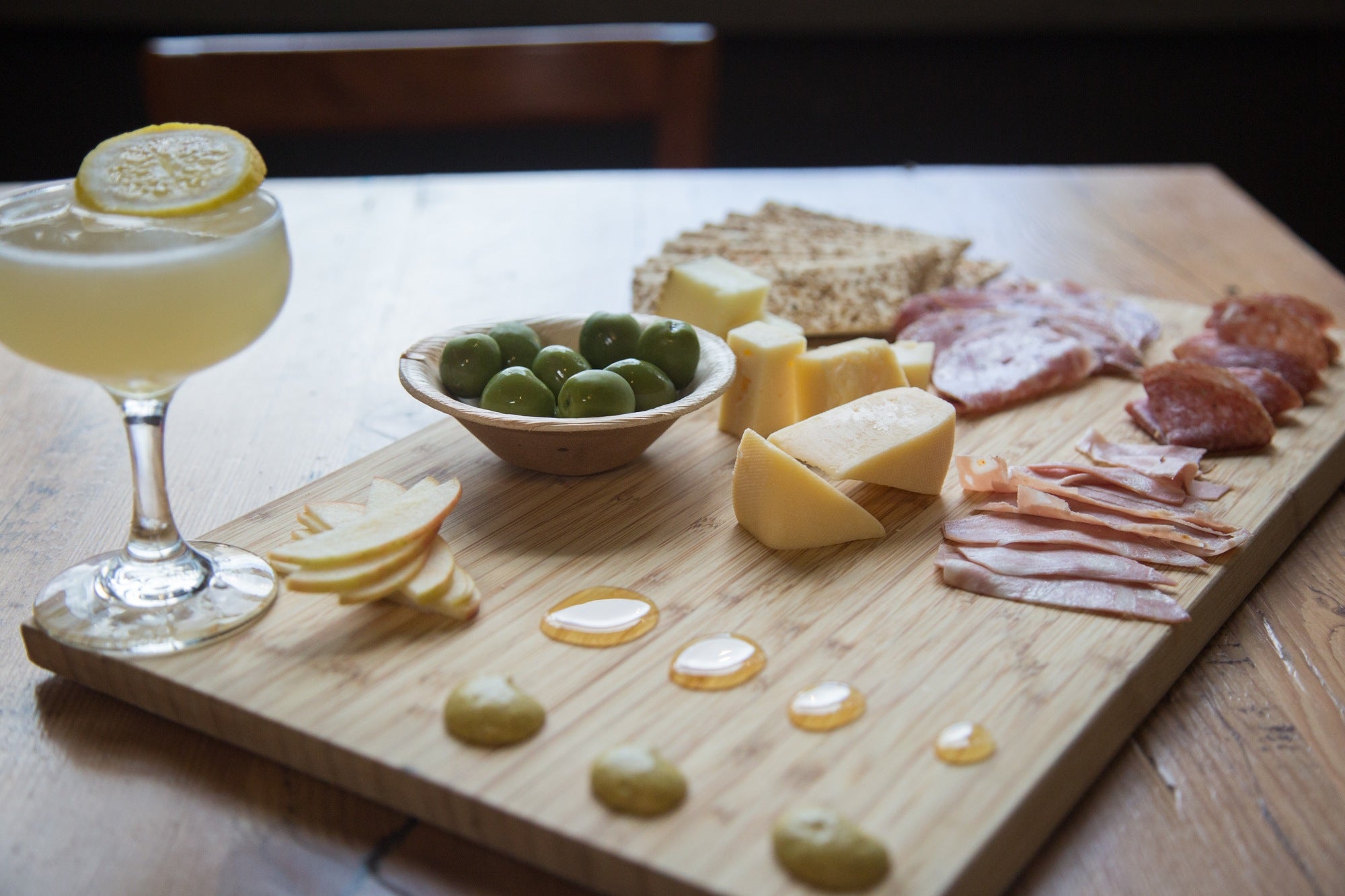
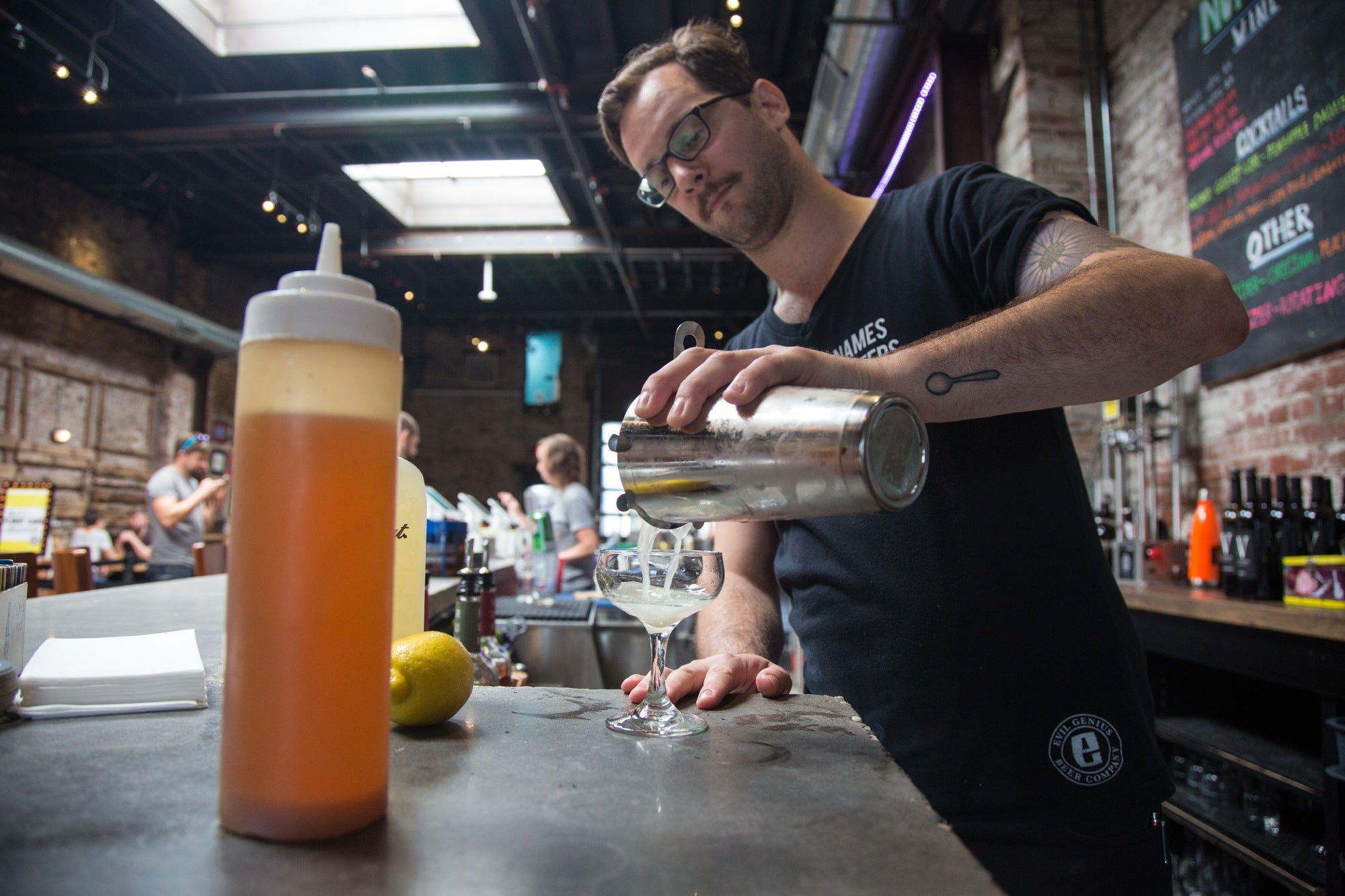
So you want to start taking care of your own hives? Check in with the Philadelphia Beekeepers Guild and their current president Sarah Plonski.
Plonski got her start in beekeeping after finding a love for gardening in college. Luckily for her, Plonski had a childhood best friend back in North Carolina whose father ran his own apiary. He gave her a crash course in beekeeping and a single hive which she brought back to Philadelphia. Unfortunately, this hive didn’t make it through the winter (not uncommon), but she didn’t give up.
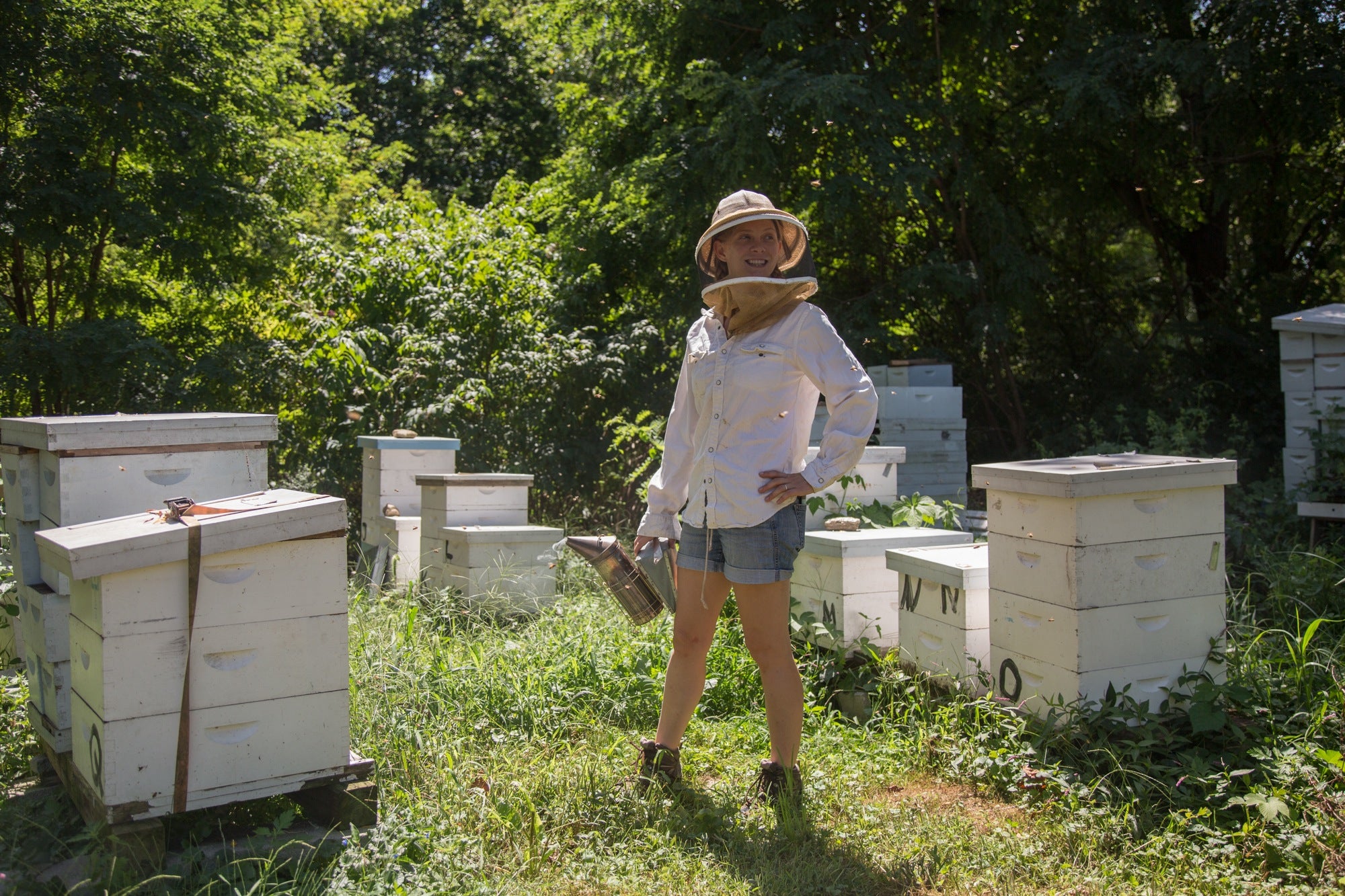
She started again, this time with two hives, which both survived the winter. The next year she grew to six hives and beat the odds.
To help others get a fresh start with beekeeping, Plonski and the Philadelphia Beekeepers Guild started a mentorship program this past spring. During this year-long program, 19 participants are learning about the theory involved in beekeeping and also getting to practice with real hives at the guild’s apiary at the Awbury Arboretum in Germantown.
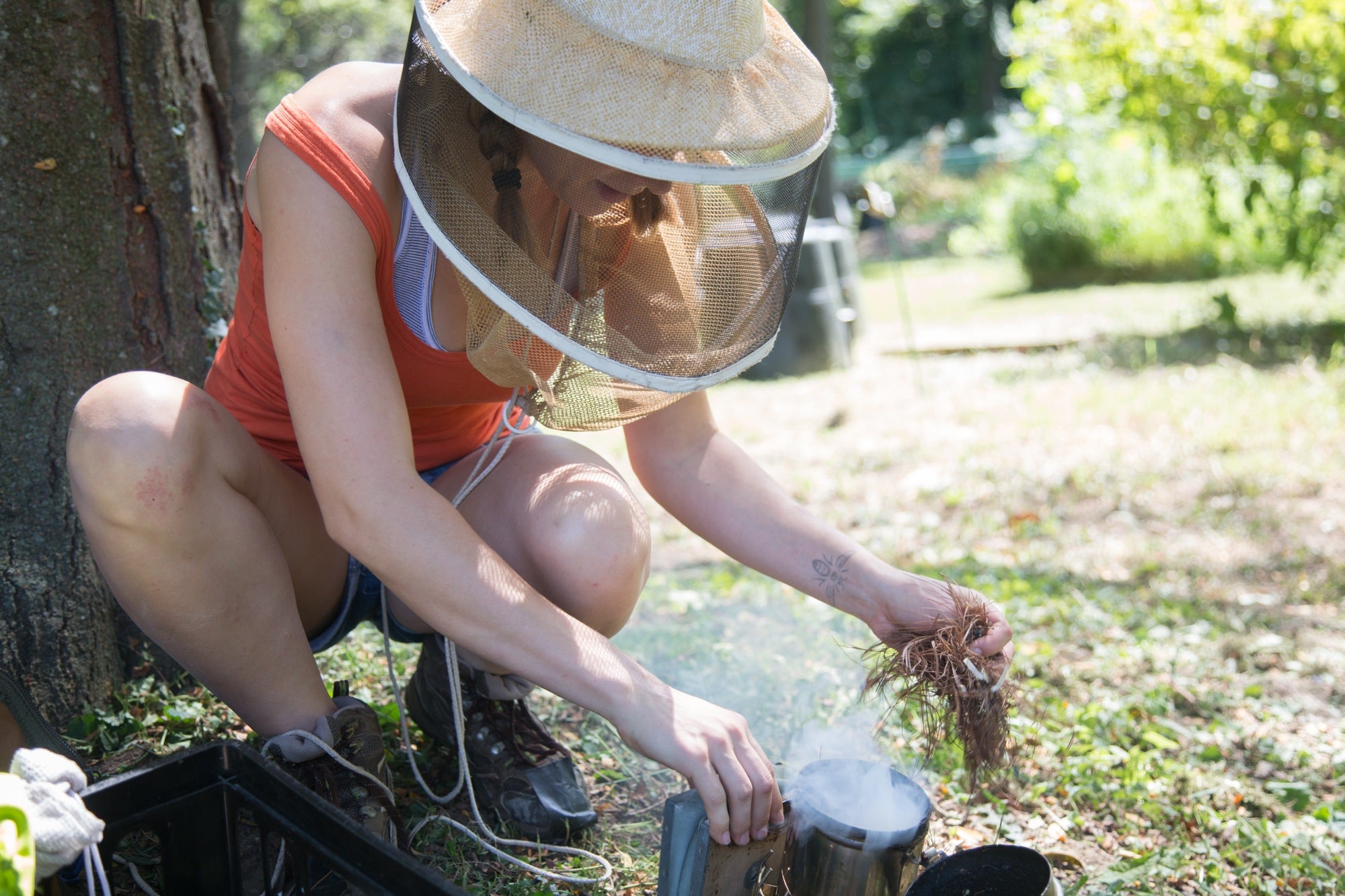
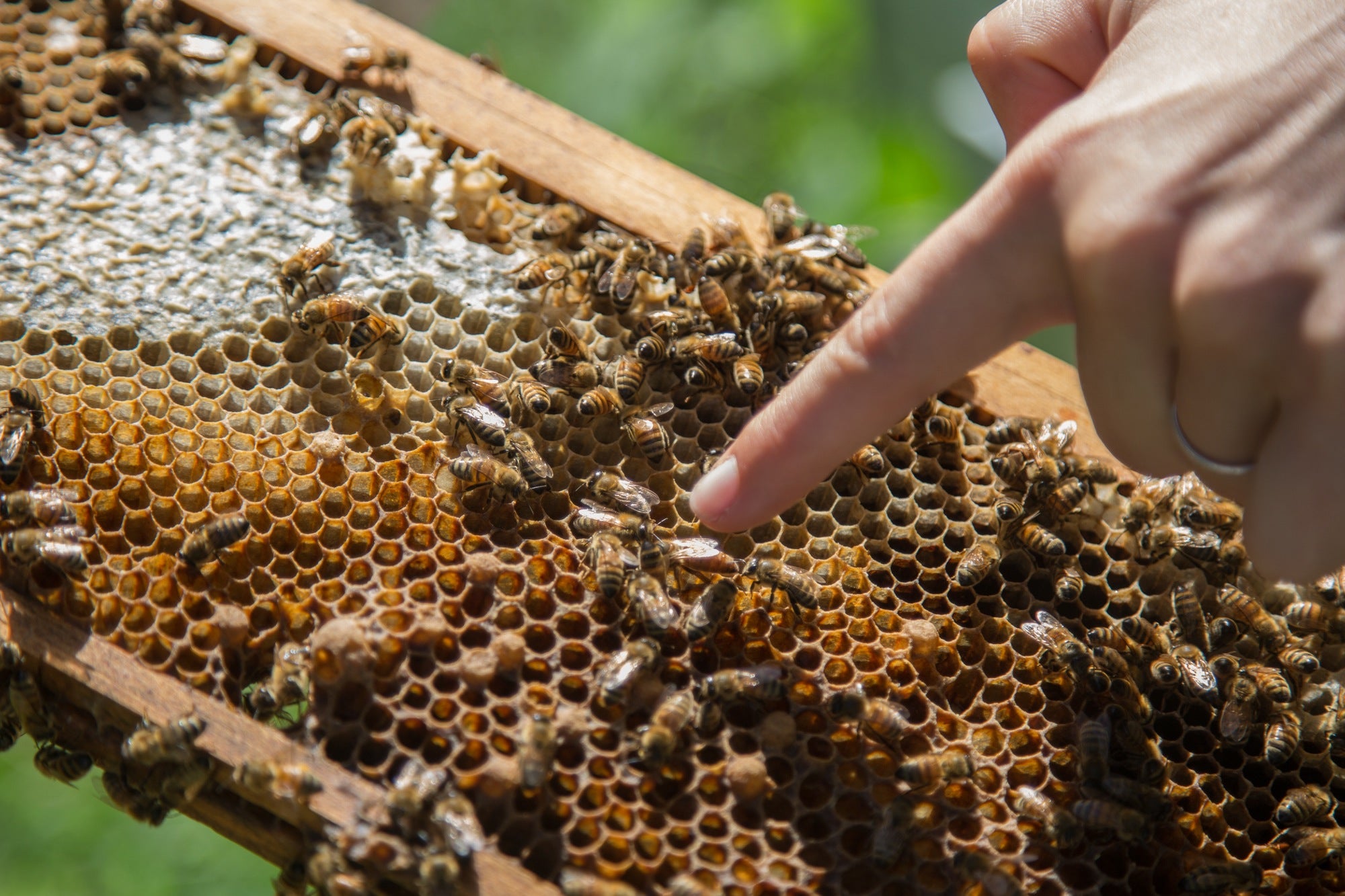
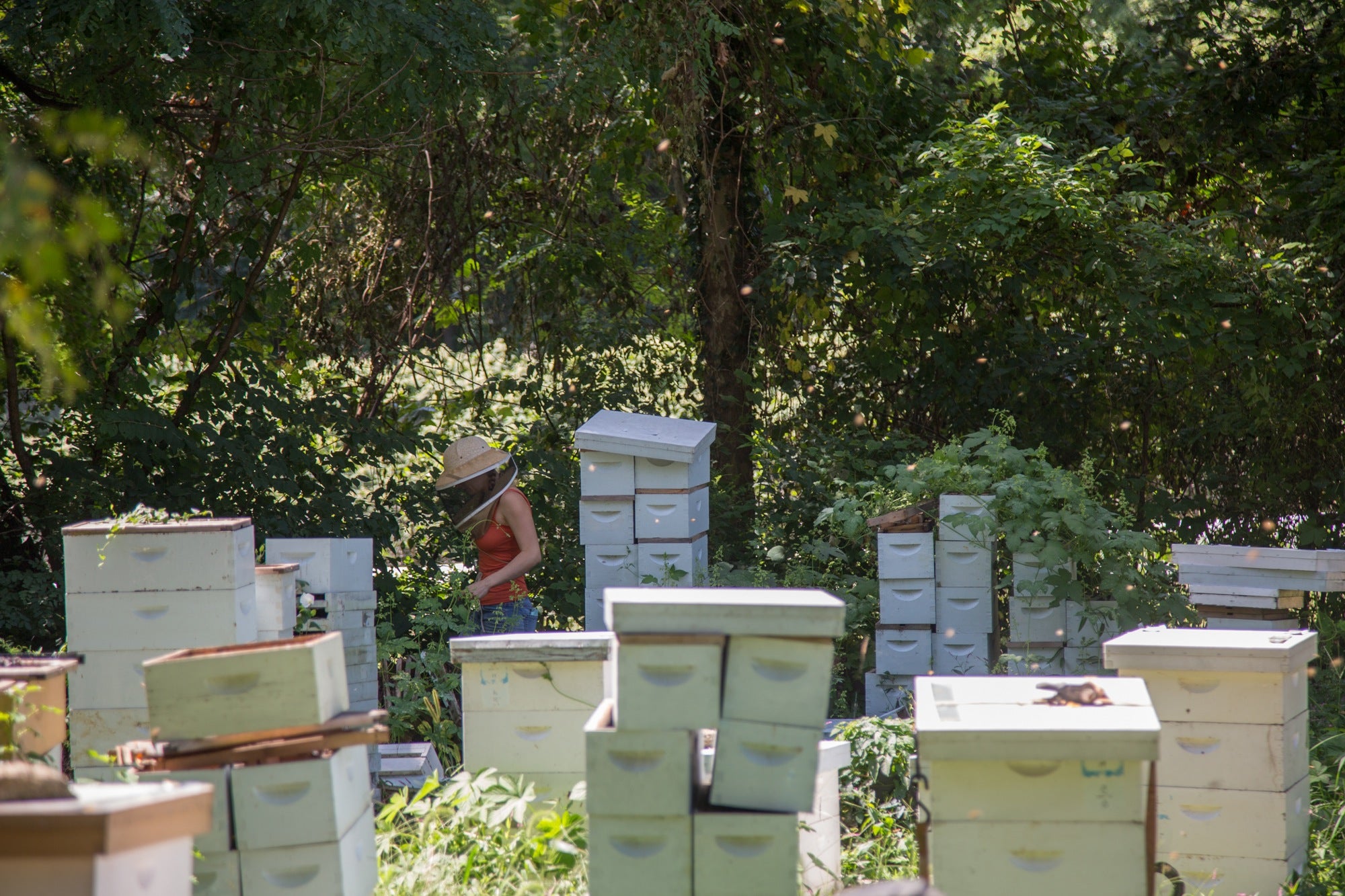
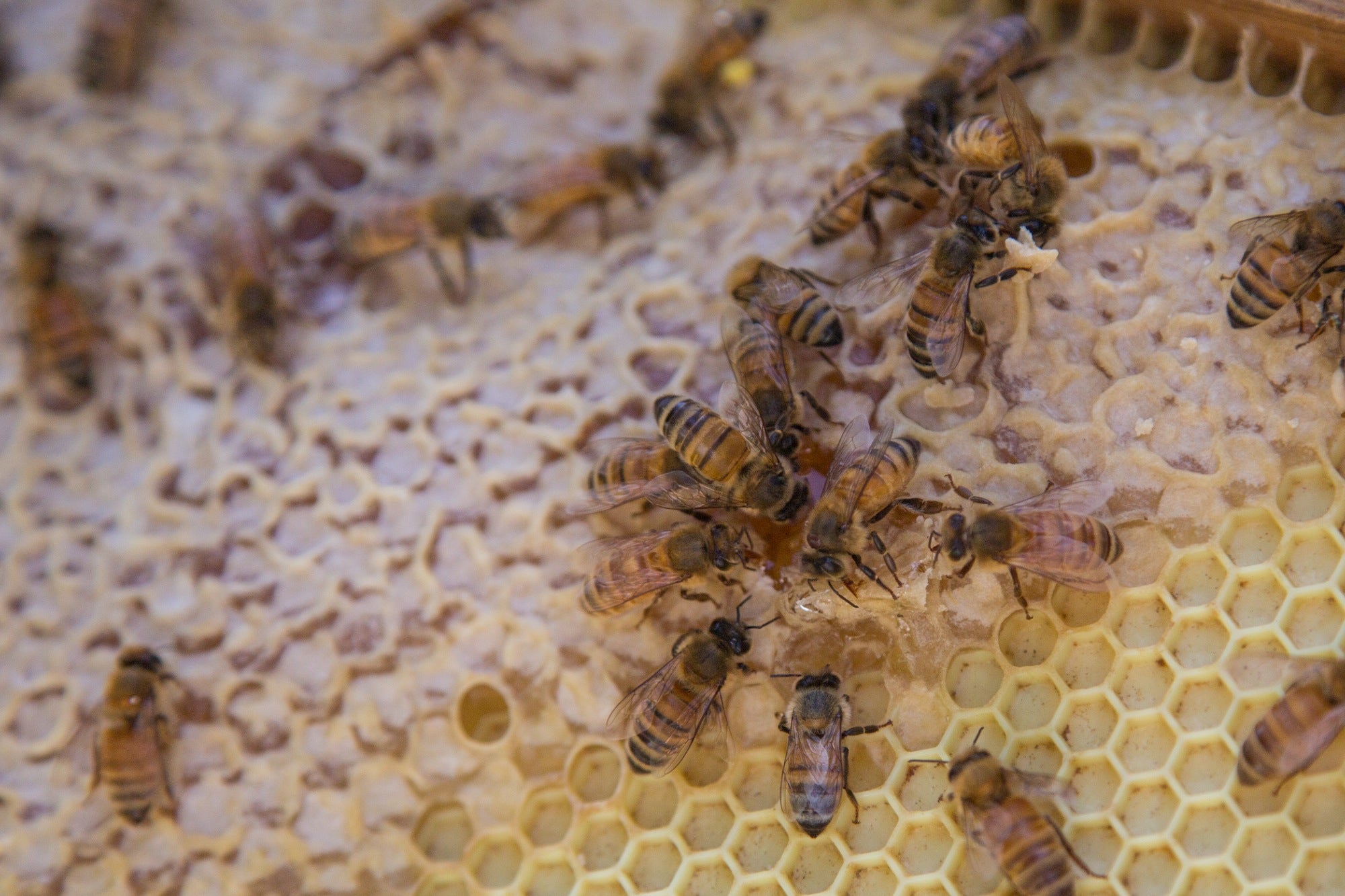
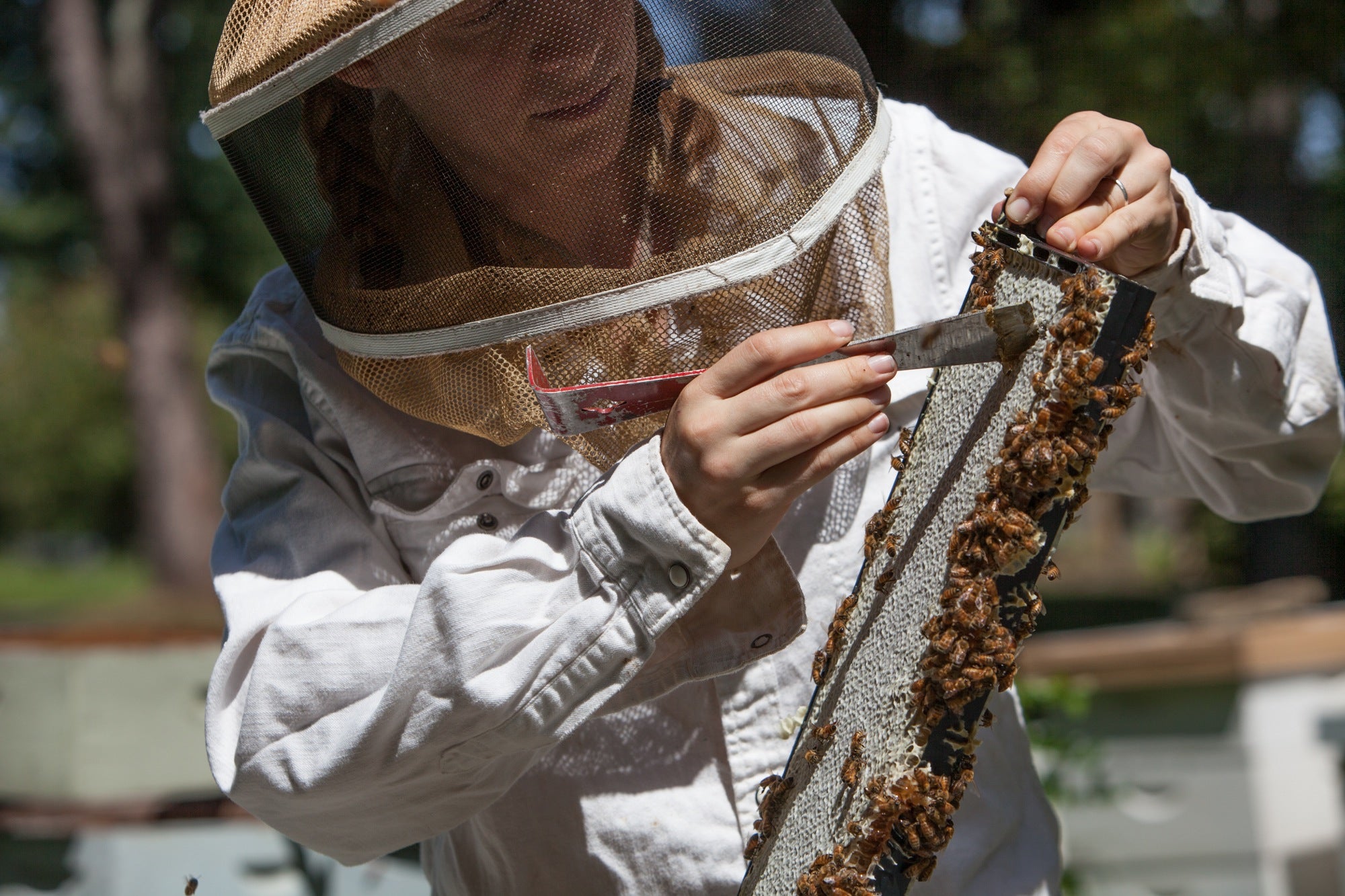
The three-day honey festival, held each day at a different venue, features speakers, demonstrations, and a variety of honey products to buy and try. It begins Friday, Sept. 6, from 5 to 9 p.m. at Glen Foerd on the Delaware in Northeast Philadelphia, and concludes Sunday at Bartram’s Garden with festivities from 10 a.m to 4 p.m.
WHYY is your source for fact-based, in-depth journalism and information. As a nonprofit organization, we rely on financial support from readers like you. Please give today.



